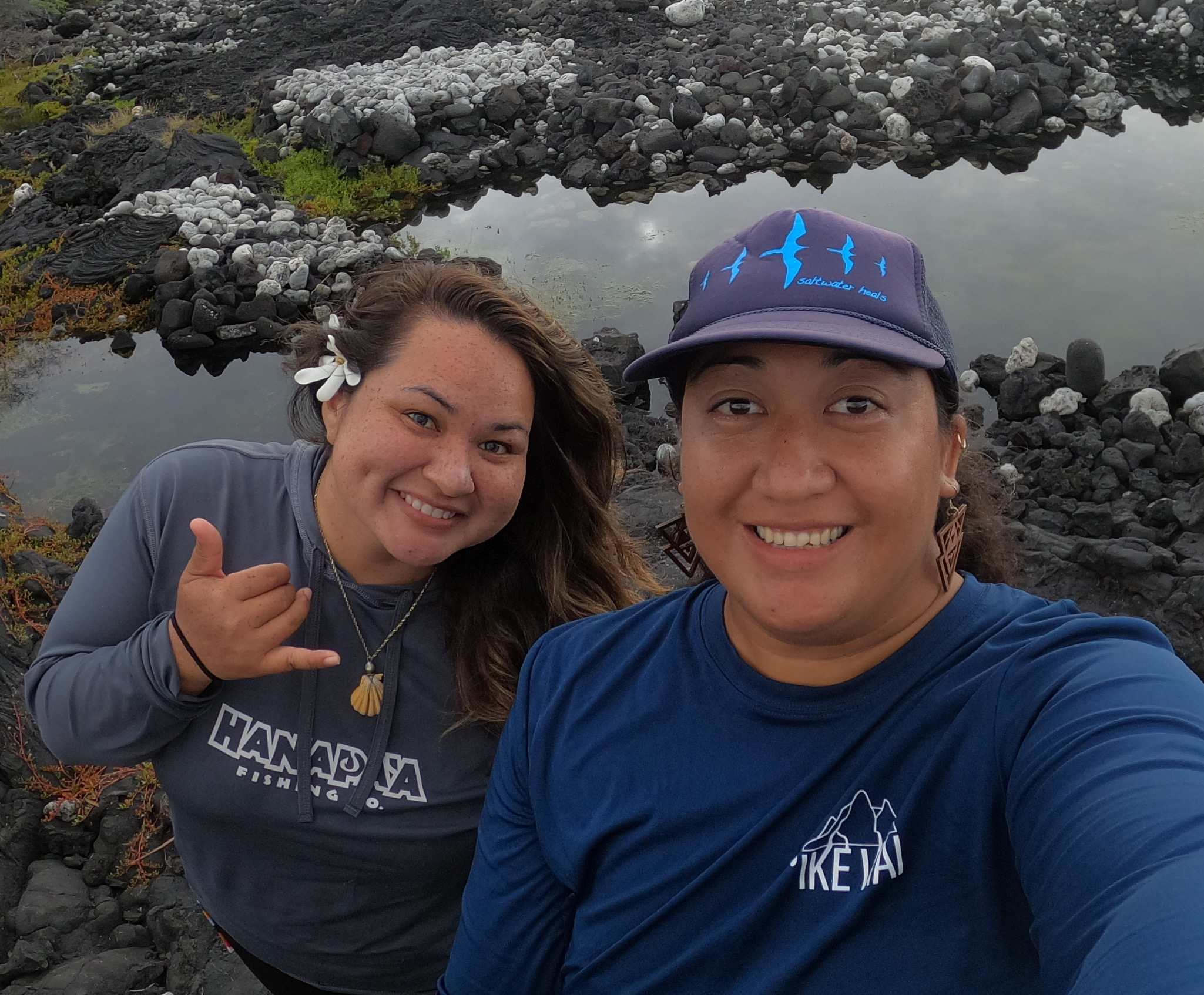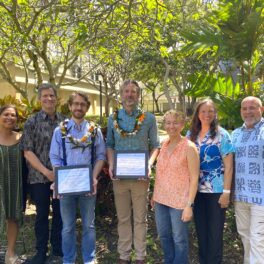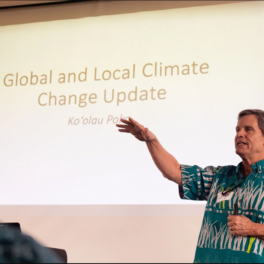National Academies fellowships support research on ecosystem, human health
 Nalani Olguin (l), Ku'i Keliipuleole (r)
Nalani Olguin (l), Ku'i Keliipuleole (r)
Two graduate students in the University of Hawai‘i at Mānoa Marine Biology Graduate Program were awarded prestigious Ford Foundation Fellowships from the National Academies of Sciences, Engineering and Medicine. Ku‘i Keliipuleole and Nalani Olguin were selected to receive the predoctoral Ford Fellowship based on their superior academic achievement and commitment to a career in teaching and research at the college or university level in the U.S.
The award provides an annual stipend of $27,000 for three years, an invitation to attend the Conference of Ford Fellows and access to Ford Fellow Regional Liaisons, a network of former Ford Fellows who provide mentoring and support to current Fellows.
Ku‘i Keliipuleole
Keliipuleole’s research focuses on ʻōpaeʻula, also known as the Hawaiian red shrimp or volcano shrimp, with Rosie Alegado, associate professor in UH Mānoa School of Ocean and Earth Science and Technology, as her advisor.
“The long-term goal of my work is to support ʻōpelu (mackerel scad) fishers, resource managers and community members in perpetuating customary ʻōpelu fishing practices which depend on restoring, protecting, and maintaining loko waiʻōpae (anchialine pool) and the organisms that live in them, such as ʻōpaeʻula,” said Keliipuleole.
As part of this project, she works for and alongside the community.
“Knowing that I am doing this research in Hawaiʻi, with the people of Hawaiʻi, and for the future of Hawaiʻi is why I’m most interested in doing this work,” she added. “Receiving this award is such an honor. I am so humbled to know that the Ford Foundation values not only what I do, but values me as an individual. I am a single parent, head of household, and the first person in my family to pursue a PhD. It has been hard, but knowing that I have the support of the Ford Foundation makes it so much easier.”
Nalani Olguin
Through her research, Olguin investigates the health of the wai (water) by assessing the role of introduced species as vectors of disease in coupled human-natural marine systems. Also based in Alegado’s laboratory, Olguin’s research links zoonotic disease and feral species that have been introduced to Hawai‘i—specifically those animals whose environmental impacts are balanced by their cultural significance, for example, pua‘a or wild boar, and introduced species without a historical function, such as cats.
“‘A‘o aku a‘o mai’ means ‘we teach, we learn’ and is the guiding ethos of my research,” said Olguin. “I’m most interested in carrying out this work because it is the product of a community partnership between several Indigenous community stakeholders, practitioners, and members living and working within the He‘eia ahupuaʻa. This research will promote Indigenous knowledge and health while working to answer questions and inform management in that area and possibly throughout Hawaiʻi.”
“Personally, this award means that the sacrifices I and my ʻohana made were not in vain and provides a bit more financial security for school,” she added. “For our lab and collaborators, I think this award confirms Indigenous knowledge and methodologies are being valued, demonstrates that Kanaka scientists and their scholarship are worthy of prestigious awards such as Ford Fellowships, and our voices have value and are being recognized in the world of research.”
More about Ford Foundation Fellowships
The Ford Foundation Fellowships Program seeks to increase the diversity of the nation’s college and university faculties by increasing their ethnic and racial diversity, to maximize the educational benefits of diversity, and to increase the number of professors who can and will use diversity as a resource for enriching the education of all students.
Read also on UH News.



